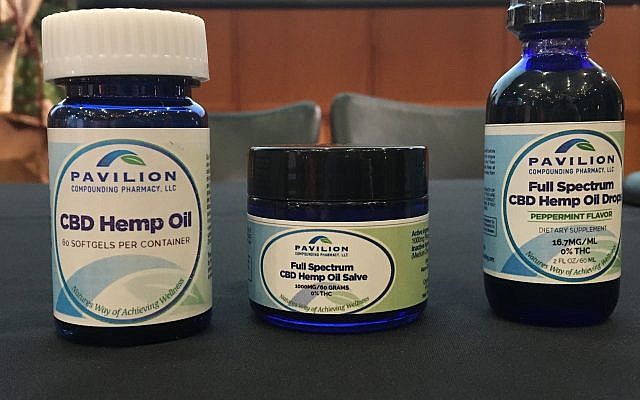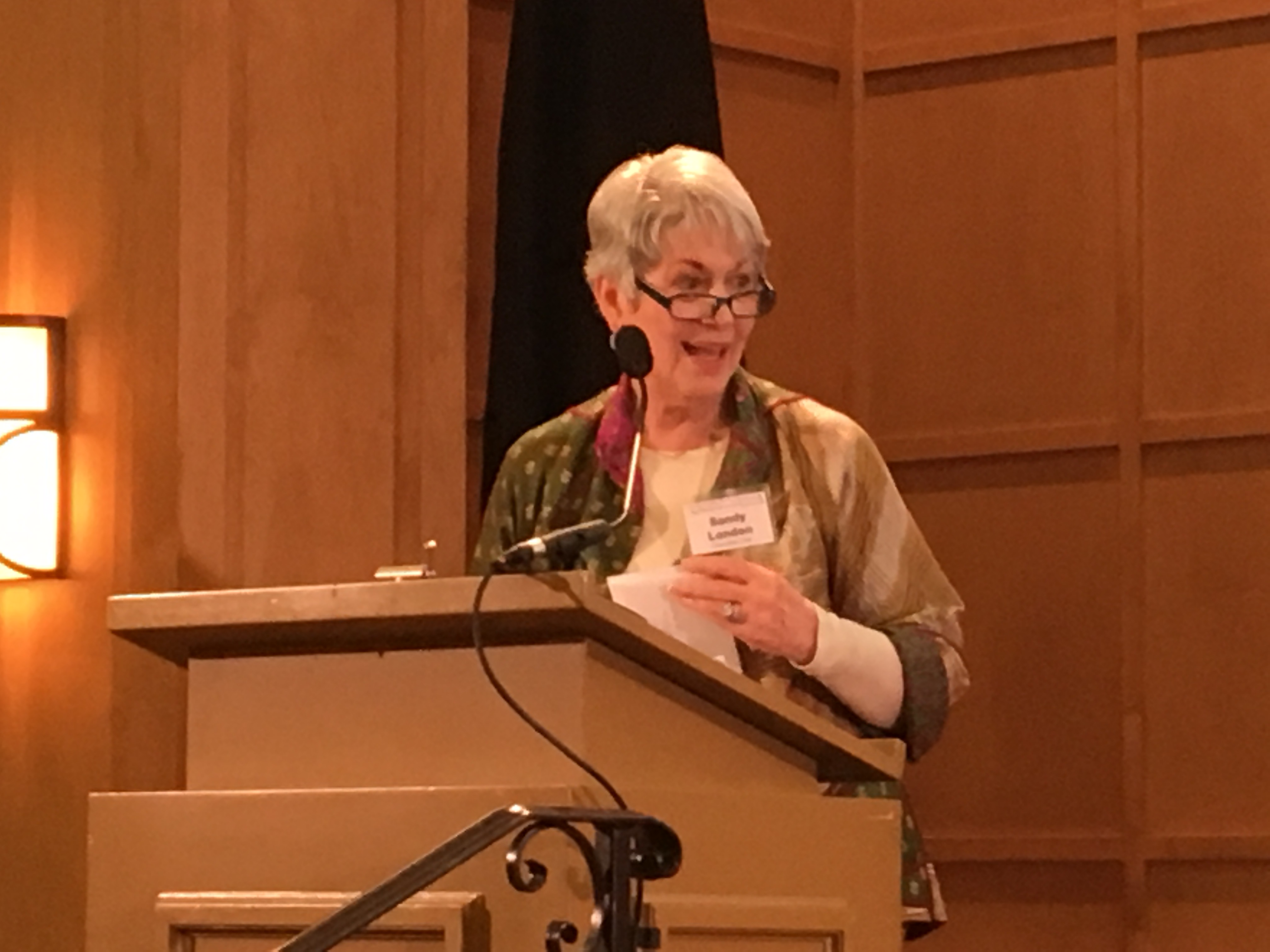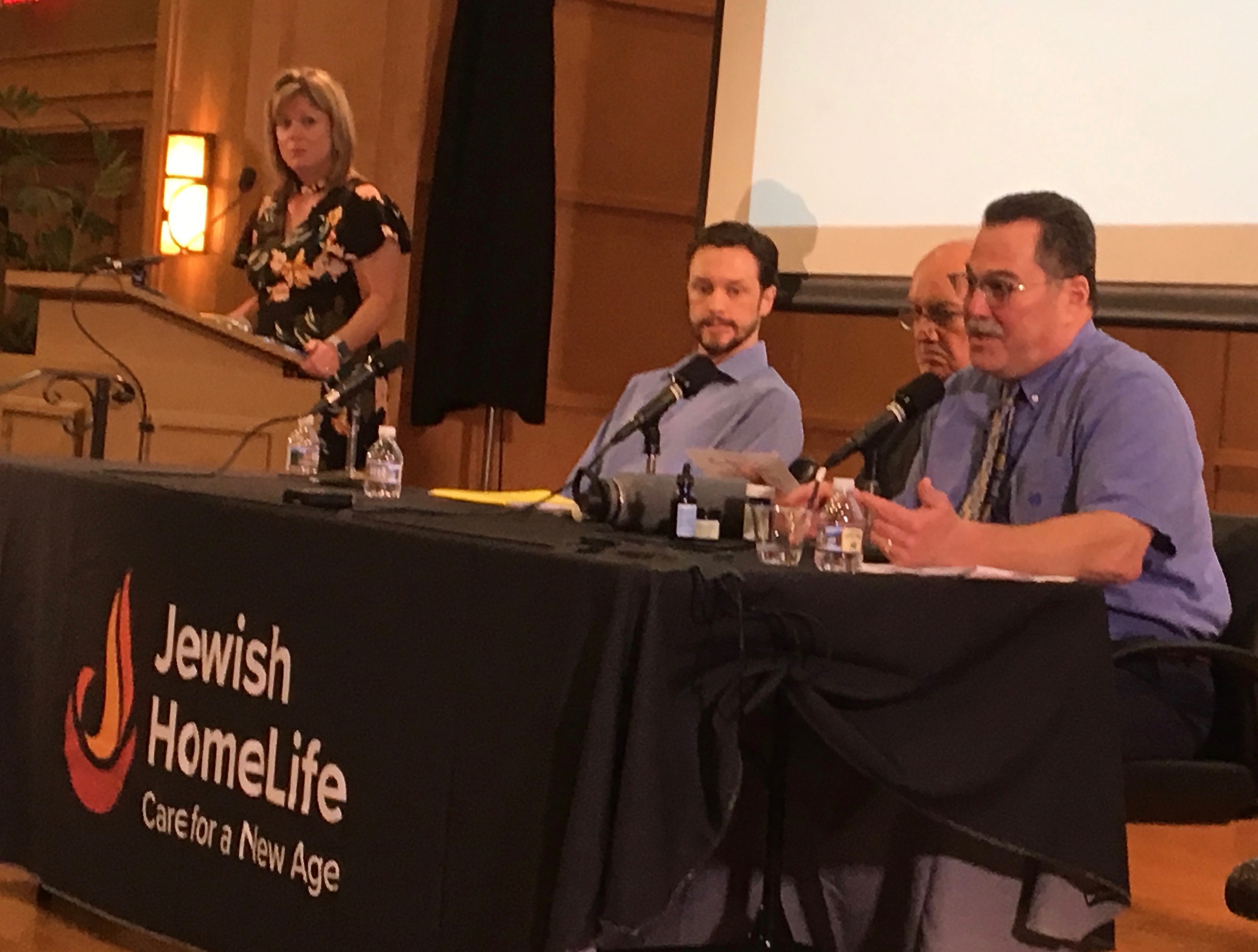Medical Marijuana Examined at AgeSmart Lecture
Community members of all ages gathered to hear the most recent London Family AgeSmart Lecture where experts discussed Medical Marijuana and legal CBD products.

Medical marijuana is gaining a slow but steady foothold in the medical marketplace, but there are many unknowns. That was the general consensus of the medical professionals who took part in the semi-annual London Family AgeSmart Lecture Sept. 22 at The Willliam Breman Jewish Home. A number of those in the near-capacity crowd were interested in how medical marijuana can relieve anxiety, among other concerns affecting the elderly and others.
The use of marijuana goes back 5,000 years to ancient China, where it was used to relieve cramps and pain. Its long history of effectiveness may be due to receptors within the body that the active medical ingredients in marijuana plants seek out.
According to Dr. Gavin Brown, an Atlanta neurologist who participated in the panel, said the body has a large network of these receptors.
“Essentially in your brain, spinal cord and immune system you have what are called endocannabinoid receptors which are activated. They’re not substances that your body makes that activates many of those receptors.”

Yet, the only derivative of cannabis – the formal name for marijuana – approved by the Food and Drug Administration, is Epidiole. It is used for the treatment of seizures associated with two rare and severe forms of epilepsy. According to Brown that’s the only formal drug he has to use on his patients.
“The FDA has not sanctioned cannabis for anything else either on or off label other than Epidiole”
The reason, in part, is that the FDA regards cannabis as a Schedule 1 drug with the potential for a high level of abuse and with no medical use. Other drugs that are Schedule 1 are heroin, LSD and cocaine. This puts researchers in a kind of medical catch-22. The federal government needs to be able to see the benefits of medical marijuana in large scale clinical trials, while at the same time making it difficult to study the plant’s medicinal value.
The development of Epidiole was fast-tracked through the FDA’s approval process and Dr. Scott Gottlieb, the commissioner of the federal agency at the time, was cautiously optimistic when it was released last year, that more products might be in the pipeline.
“We’ll continue to support rigorous scientific research, “on the potential medical uses of marijuana-derived products and work with product developers who are interested in bringing patients safe and effective, high quality products.”
Despite the federal hurdles in developing new drugs, in the last several years 33 states and the District of Columbia allow marijuana products for medical purposes. Under a Georgia law passed in April, patients who register with the state can obtain a prescription to obtain marijuana oil, which can contain up to 5 percent THC, the main psychoactive component of the cannabis plant.
Dr. Brown told the AgeSmart audience that in addition to using Epidiole for patients with epilepsy he prescribes cannabis oil to help relieve the pain and difficulty of moving for those with Muscular Dystrophy and Parkinson’s Disease. He also uses it to relieve anxiety in patients with Alzheimer’s disease and dementia among other conditions, but even he admits that, as a physician, there is still a lot to learn about medical marijuana’s effectiveness.
The state’s so-called Low THC Oil Registry allows it to be used for 17 conditions.
“I have over 100 patients registered with the Georgia Department of Health that are using 5 percent THC oil, but there are no medical guidelines about what dosage to use. We also don’t have any guidance on how to titrate or adjust the dosage. We don’t know what side effects to anticipate, However, in my experience low dosage THC oil is very well tolerated.”

For those who wish to try products that are not taken under medical supervision, there are a wide variety of CBD products derived from hemp, a botanical relative of marijuana. A quick search of the Amazon website brought up over 6,000 CBD preparations. By law they have very little THC, the substance in cannabis that makes you high.
Often, however, it’s hard to tell what you’re getting. It was pointed out during the presentation at the William Breman Jewish Home that in a recent study of over the counter CBD products 40 percent to 50 percent of them were mislabeled.
Medical professionals such as Brad Cherson, a compounding pharmacist who was part of the AgeSmart Lecture panel, looks for suppliers that meet the United States Pharmacopeia standards guaranteeing quality, potency and purity. Cherson doesn’t usually find those standards in products sold in a convenience store or a big box retailer.
“A lot of what we are seeing is a huge marketing effort. There are a lot of opportunities to jump on the hemp, CBD oil bandwagon for everything under the sun.”



comments